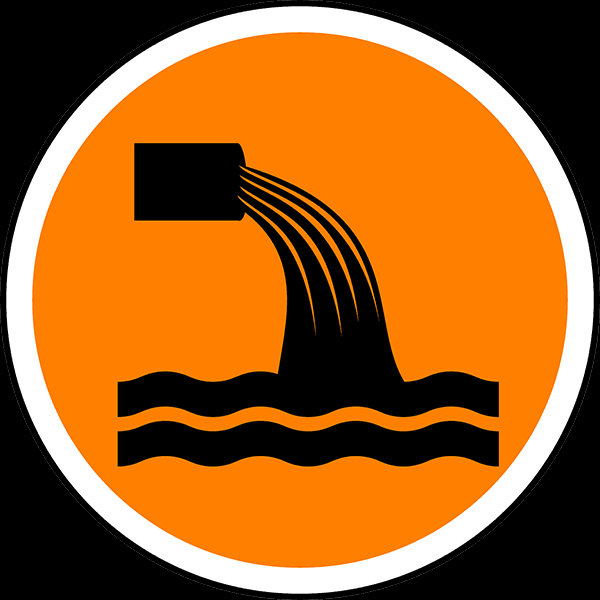The Buzz on Reclaim Waste
The Buzz on Reclaim Waste
Blog Article
Reclaim Waste Things To Know Before You Buy
Table of ContentsThe Only Guide to Reclaim WasteNot known Facts About Reclaim WasteNot known Incorrect Statements About Reclaim Waste Some Known Incorrect Statements About Reclaim Waste The 5-Minute Rule for Reclaim Waste
Check out the types, events, and forms of liquid waste. Domestic sewer waste refers to the waste and products from a household septic container. This kind of waste is produced by human beings in houses, colleges, and various other buildings. This only includes sewage-disposal tanks that have a drainpipe area. The appropriate management and disposal of residential sewage waste require liquid waste to be transferred to a sewage therapy plant where the proper approaches and equipment are put on purify and dispose of waste.
Business waste typically consists of potential risks, such as combustible materials or a mix of fluid and solid waste products, and calls for an extra innovative and thorough disposal procedure. The disposal of commercial waste usually involves the filtering of waste prior to transportation to ensure risk-free and correct disposal. Industrial waste is developed from by-products and overflow of commercial processes and manufacturing.
This type of waste can not make use of the same sewer management transportation or procedures as septic or business liquids. The industrial waste monitoring procedure calls for the examination and testing of liquid waste prior to it goes through the disposal process (liquid waste removal). Runoff waste is the fluid waste that comes from runoff and excess stormwater in extremely populated locations or cities
Drainage waste can create contamination and flooding if not managed effectively. Ensuring correct waste management can prevent disasters and lower ecological harm.
6 Simple Techniques For Reclaim Waste
Call PROS Services today to find out about our waste monitoring and disposal services and the correct means to take care of the fluid waste you produce.
(https://hearthis.at/leon-aube/set/reclaim-waste/)Do you know what happens to your water when you draw the plug, flush the commode or drain the cleaning maker? No? Well, it deserves knowing. This supposed 'wastewater' is not just a vital source but, after treatment, will be released to our land, waterways or the sea. Made use of water from toilets, showers, baths, cooking area sinks, laundries and commercial processes is referred to as wastewater.

water utilized to cool equipment or tidy plant and equipment). Stormwater, a kind of wastewater, is overflow that flows from farming and city areas such as roofing systems, parks, yards, roads, paths and gutters right into stormwater drains pipes, after rain. Stormwater streams without treatment directly to local creeks or rivers, ultimately getting to the sea.
Not known Facts About Reclaim Waste
In Queensland, a lot of wastewater is dealt with at sewage therapy plants. Wastewater is transported from residential or commercial sites with a system of sewage systems and pump terminals, called sewage reticulation, to a sewage treatment plant. Neighborhood governments develop, keep and run most sewage therapy plants. Operators are accredited under the Environmental Management Act 1994 to release cured wastewater at More about the author an acceptable ecological requirement right into rivers.
The Department of Natural Resources advises city governments regarding handling, operating and maintaining sewage systems and therapy plants. In unsewered locations, city governments might need householders to mount specific or home sewage therapy systems to deal with residential wastewater from toilets, cooking areas, shower rooms and washings. The Department of Natural Resources authorises using family systems when they are verified to be reliable.
Many stormwater obtains no therapy. In some brand-new class, treatment of some stormwater to remove clutter, sand and crushed rock has begun using gross toxin traps. Wastewater therapy happens in four phases: Eliminates solid matter. Larger solids, such as plastics and various other items wrongly released to drains, are gotten rid of when wastewater is gone through displays.
Uses little living microorganisms recognizes as micro-organisms to break down and remove staying liquified wastes and great bits. Micro-organisms and wastes are incorporated in the sludge.
Reclaim Waste - An Overview
Nutrient elimination is not readily available at all sewage therapy plants due to the fact that it requires costly specialized devices. Clear liquid effluent generated after treatment might still have disease-causing micro-organisms - liquid waste disposal melbourne.

The majority of wastewater moves into the sewage system. Under the Act, regional governments carry out approvals and licences for ecologically pertinent tasks (Periods) entailing wastewater launches that may have a regional impact.
How Reclaim Waste can Save You Time, Stress, and Money.
Monitoring offers valid information concerning water top quality and can confirm that licence problems are being satisfied. The details gotten with surveillance offers the basis for making water quality choices.
Report this page